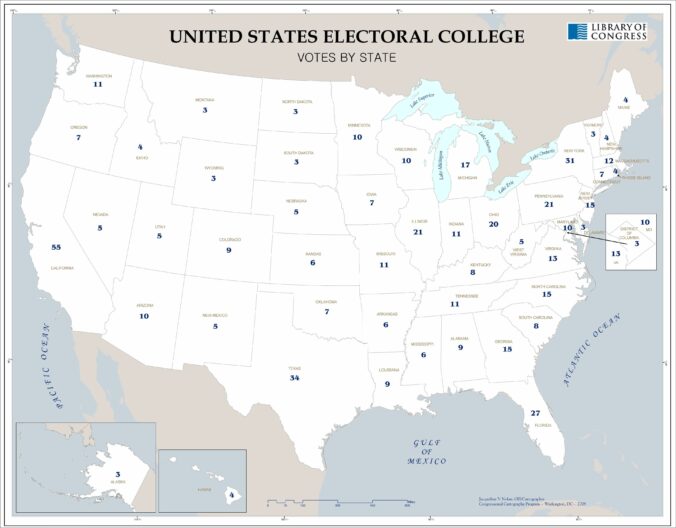Americans went to the polls in the 2020 presidential election on Nov. 3, but on Monday the Electoral College will meet to cast its votes — one of the last steps to officially install a president before Inauguration Day on Jan. 20.
The voters in the Electoral College are empowered by the Constitution to select the next commander in chief — and President-elect Joe Biden is expected to emerge with 306 electoral votes to President Trump’s 232.
It takes 270 to win the presidency.
Here’s what you need to know about the process
What time does it begin?
The vote begins at 10 a.m. EST Monday and continues through the day as each state goes through the process. New York meets at noon, while California won’t meet until 5 p.m. Eastern.
Will it be broadcast and live-streamed?
A number of news outlets, including CNN, CNN.com and C-Span will carry the votes. Many states will also have livestreams, including Wisconsin, Michigan, Pennsylvania and Georgia, where the results were contested in the courts.
Why December 14?
The electors by law meet on the first Monday after the second Wednesday in December, providing enough time to resolve any disputes about the Nov. 3 election.
Where do the electors meet and what to they do?
The electors meet in places dictated by their state legislatures — most often the state capital. Nevada will meet virtually.
Each of the 538 electors casts a vote for president and one for vice president. Those votes are counted and certified and combined with the governor’s vote totals. All 50 states have certified their votes. Copies are then sent to the US Senate, the state’s secretary of state, and the National Archives and Records Administration.
Do they have to vote for the candidate who won their state?
Laws in 32 states and the District of Columbia require electors to vote for the candidate who won the popular vote in their state. But 17 states allow electors to vote for their choice. The US Supreme Court ruled in July that “faithless electors” who don’t cast votes for the candidate they were pledged to support can be punished by the state.
Who are the electors?
Usually they are political hopefuls, loyalists and elected officials selected by their parties.
Why is there so much interest this year?
Usually the electoral voters meet every four years without the inordinate amount of attention the meeting has gained this year. Trump has yet to concede the election to Biden, and through his legal team or Republican allies, has disputed the results in the courts.
Why is there an Electoral College?
The country’s founders sought a compromise between the popular vote and having Congress choose the president. The Constitution allows each state a number of electors equal to their seats in Congress. Other than Maine and Nebraska, states give all of their votes to the winner of the popular vote in their state.
Twice in the last 20 years, the winner of the popular vote lost to the winner of the Electoral College — Trump over Hillary Clinton in 2016 and President George W. Bush over Al Gore in 2000.
What happens next?
The electoral votes are counted by the House and Senate on Jan. 6. If a member of either chamber objects to the vote, the House and Senate meet separately for debate. But to sustain the objection, both chambers must vote to do so. That’s unlikely to happen in the Democratic-controlled House.
The Inauguration is on Jan. 20.
